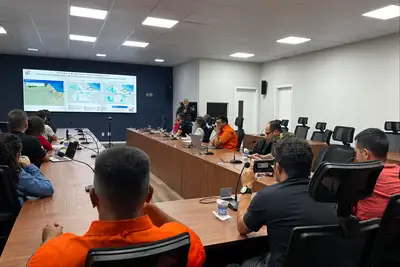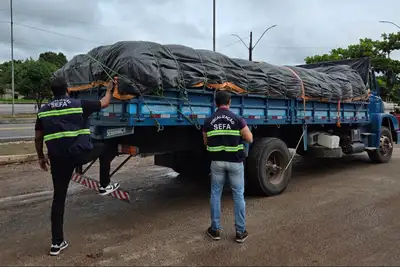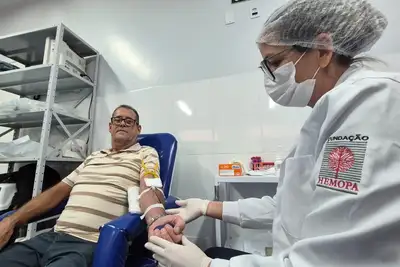"Educational doll" assists in the treatment of a child hospitalized in the State Emergency Room
The object, previously used only as a pedagogical resource in the hospital team's training, has now been incorporated playfully by the multiprofessional team to assist with the therapeutic care related to the tracheostomy of young patients.
An "educational doll" from the Dr. Roberto Macedo Emergency Room (PRSM) in Belém has received a new mission in the Pediatric ICU of the health unit. The object, previously used only as a pedagogical resource in the hospital team's training, has now been incorporated playfully by the multiprofessional team, mainly by Rehabilitation professionals, consisting of physiotherapists and speech therapists, and nursing staff, to assist with the therapeutic care related to the tracheostomy of young patients.
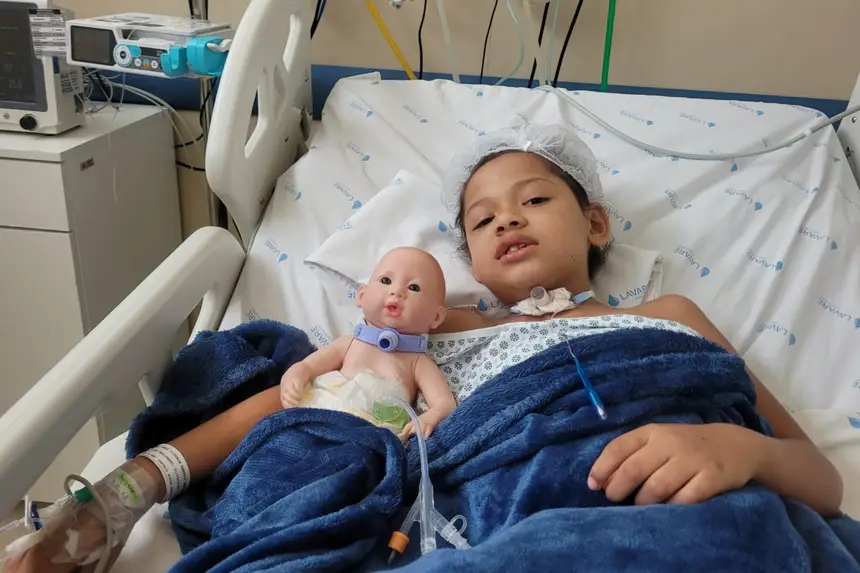
Anahí Victória Sampaio Mendes, 7 years old, a resident of the municipality of Marabá in southeastern Pará, underwent a surgical procedure on August 7 due to the impossibility of removing the object through a regular procedure (bronchoscopy) because of airway swelling caused by the aspiration of a coloring pen cap.
The tracheostomy was the necessary urgent procedure to remove the foreign body without further complications. To minimize the fear and stress that Anahí exhibited due to hospitalization and the discomfort and strangeness caused by the tracheostomy, the patient had the doll Sofia, a name given by Anahí, introduced into her therapeutic plan.
"The child who receives this playful resource, incorporated into the treatment routine, becomes more cooperative and more confident. Playfully, we show how the occlusion is done, and that the manipulation of the tracheostomy does not cause pain or injuries. We have had good results such as decannulation [the process of removing the tracheostomy tube]," highlights Anahí's speech therapist, Elaine Silva.
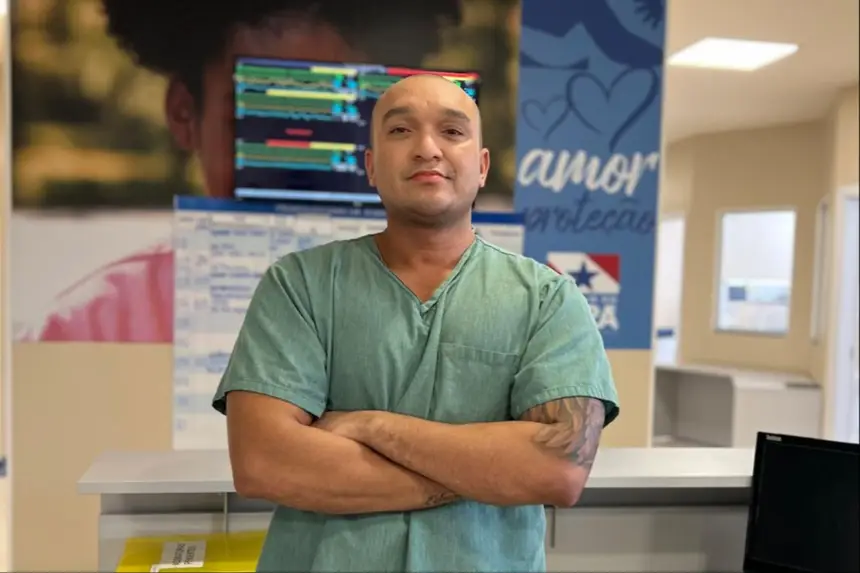
According to Alan Melo dos Santos Silva, a professional working in pediatric and neonatal intensive therapy, "the tracheostomy is a surgical medical procedure with precise indications; however, in the context of pediatric patients, it is important to consider the social and environmental issues in which the patient is inserted, especially since we know that tracheostomy is associated with higher morbidity and mortality when compared to adult patients," points out the doctor.
"I thought it was a very good idea to place a little doll with a tracheostomy alongside Anahí, just like hers. It calmed her down, helped with the anxiety crisis she was having, and she liked it very much; she liked it so much that she already wants to take the doll home. With God's help, the ICU team, and also with Sofia's help, she no longer had this anxiety crisis or fear. For Anahí, Sofia is a toy that distracted her mind, taking away the fear and anxiety," said Anahí's mother, Beatriz Souza Sampaio.
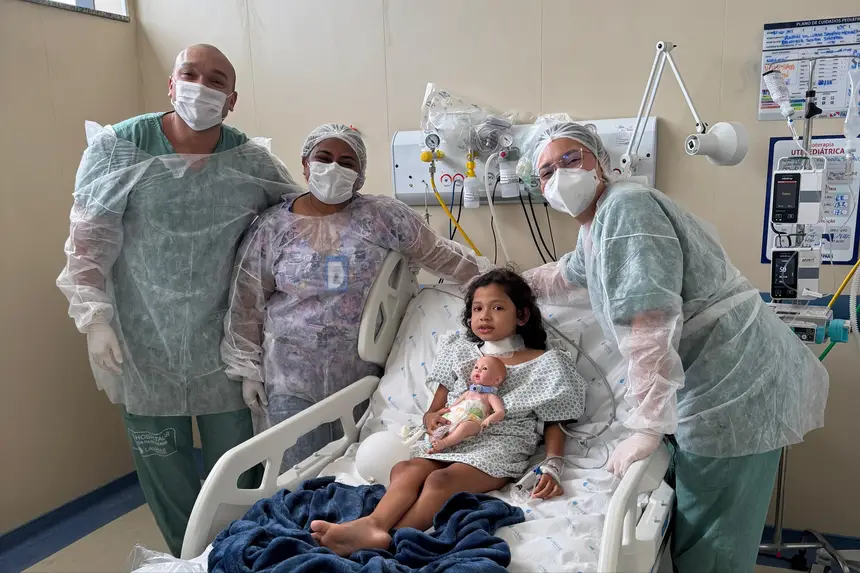
According to hospital and clinical psychologist Edilson Silva Pereira, the strategy of using playful resources during hospitalization is essential for the child, who begins to feel more secure, comfortable, at ease, and confident. "The child needs protection, and the playful element brings an affective memory of attachment for her. The object itself brings a construction for her subjectivity, and she feels more protected within this process. The fact that Anahí calmed down is very important for her treatment because it allows the professional to work better, as it becomes easier to develop a therapeutic process so that this child has a treatment with good results for her health. So I thought the idea was wonderful because it has a scientific basis, structure, step by step, direction, a beginning, middle, and end, that is, it has a prognosis that can be very satisfactory for this child who is in a therapeutic process," emphasizes the psychologist.
"Anahí remains in the Pediatric ICU bed, completely stable, and on the afternoon of this Saturday (11), decannulation (removal of the tracheostomy tube) was successfully performed, thanks to the multiprofessional work along with physiotherapy, speech therapy, thoracic surgery, nursing, and hospital humanization services, which, through playful tools, such as a doll with adapted devices, facilitated interaction with the child, and in a more empathetic way, made the hospitalization period lighter," adds Dr. Alan Melo.
Managed by the Acqua Institute in partnership with the State Department of Public Health (Sespa), the PSRM provides clinical emergency and urgent care for the Metropolitan Region of Belém, districts, and neighborhoods surrounding Avenida Augusto Montenegro, where the health unit is located. The state emergency room has 119 beds, distributed among adult and pediatric emergency care, hospitalizations, and ICUs, as well as six surgical rooms equipped for medium and high complexity procedures, including minimally invasive ones, such as videolaparoscopy, and critical cases in general, vascular, pediatric, thoracic, and bucomaxillofacial surgery, as well as neurosurgery.
Service:
The Dr. Roberto Macedo Emergency Room is located on Avenida Augusto Montenegro. The unit has 119 beds, distributed among Adult and Pediatric Emergency Care, Hospitalization Units, and ICUs (Adult and Pediatric), as well as six surgical rooms equipped for medium and high complexity procedures, including minimally invasive ones performed via videolaparoscopy.








